Biology > QUESTIONS & ANSWERS > BIOD 151 Modul 2 Exam Questions with complete solutions Portage Learning (All)
BIOD 151 Modul 2 Exam Questions with complete solutions Portage Learning
Document Content and Description Below
M2: Exam- Requires Respondus LockDown Browser Question 1 4 / 4 pts How many lobes does the right human lung have? Your Answer: Three lobes. Three Lobes Question 2 3 / 3 pts Air and food pass... in which one of the following areas: Trachea Nasopharynx Correct! Oropharynx Alveoli Question 3 3 / 3 pts Rings of cartilage line much of the respiratory tract. In which of one the following would cartilage NOT be found? Trachea Larynx Bronchi Correct! Alveoli Question 4 10 / 10 pts Label the following five items from the diagram: Label B- ___________ Label D- __________ Label E- __________ Label F- __________ Label G- __________ Your Answer: Label B- Oral Cavity Label D - Epiglottis Label E- Glottis Label F- Trachea Label G- Esophagus Label B- Oral Cavity Label D- Epiglottis Label E- Glottis Label F- Trachea Label G- Esophagus Question 5 5 / 5 pts Note: Essay answers must clearly be in your own words. Explain what happens to the epiglottis during swallowing. Why? Your Answer: When we swallow the epiglottis moves to block the entrance of food particles into our larynx and lungs. The muscles of the larynx pull upward to assist with this movement. They tightly close during swallowing. This prevents food from entering our lungs. The trachea is closed by the epiglottis. The epiglottis moves inferiorly, covering the trachea. This is to prevent food or liquid from entering the lungs. Question 6 5 / 5 pts Note: Essay answers must clearly be in your own words. Explain at least two differences between Type I and Type II alveolar cells. Your Answer: The type I cells is a complex branched cell with multiple cytoplasmic plates that are greatly attenuated and realatively devoid of organelles. Type I cells the very thin simple squamous epithelium of the alveoli junction with capillaries. Make up roughly 95 % of aleveolar epithelial cells. The Type II cells act as the 'caretaker' of the alveolar compartment. Type II produce and secrete pulmonary surfactant which is needed throughout the alveolar surface to keep the alveoli open. In addion, Type II cells can divide to replace damaged Type I cells. Make up roughly 5% of alveolar epithelial cells. a. Type I form the very thin simple squamous epithelium of the alveoli in junction with capillaries. Make up roughly 95% of alveolar epithelial cells. b. Type II produce and secrete pulmonary surfactant which is needed throughout the alveolar surface to keep the alveoli open. In addition, Type II cells can divide to replace damaged Type I cells. Make up roughly 5% of alveolar epithelial cells. [Show More]
Last updated: 1 year ago
Preview 1 out of 13 pages
Instant download
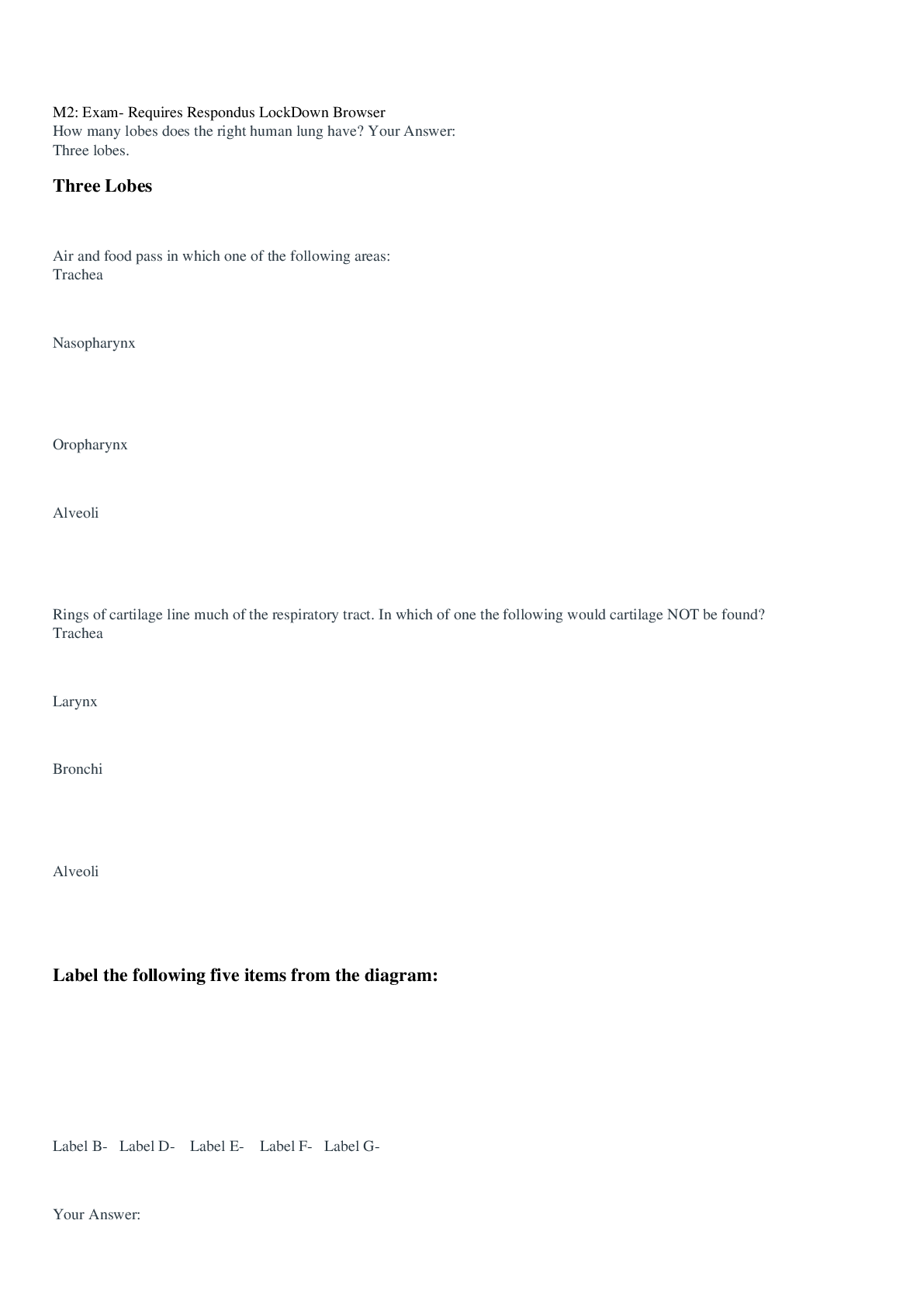
Buy this document to get the full access instantly
Instant Download Access after purchase
Add to cartInstant download
Reviews( 0 )
Document information
Connected school, study & course
About the document
Uploaded On
Aug 25, 2022
Number of pages
13
Written in
Additional information
This document has been written for:
Uploaded
Aug 25, 2022
Downloads
0
Views
113
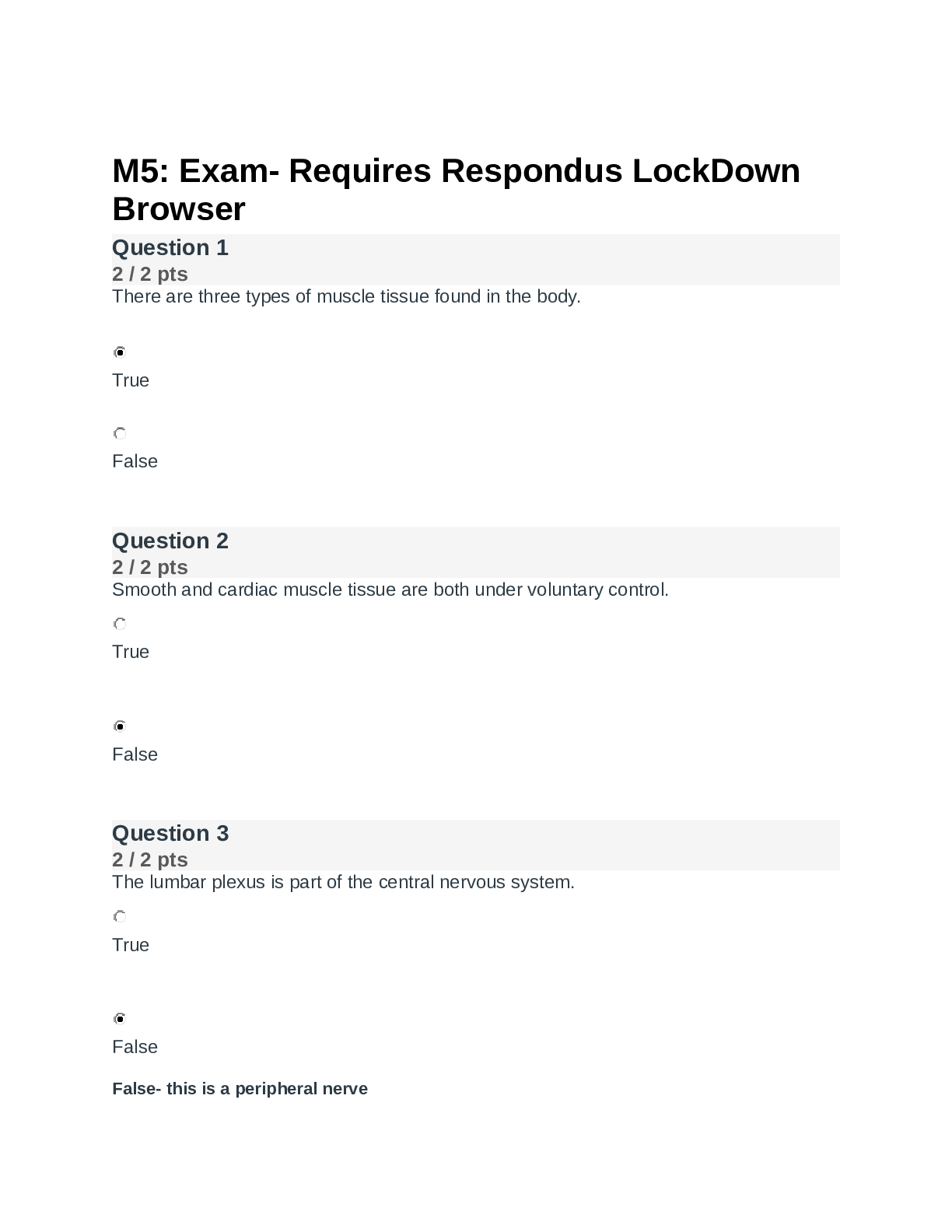

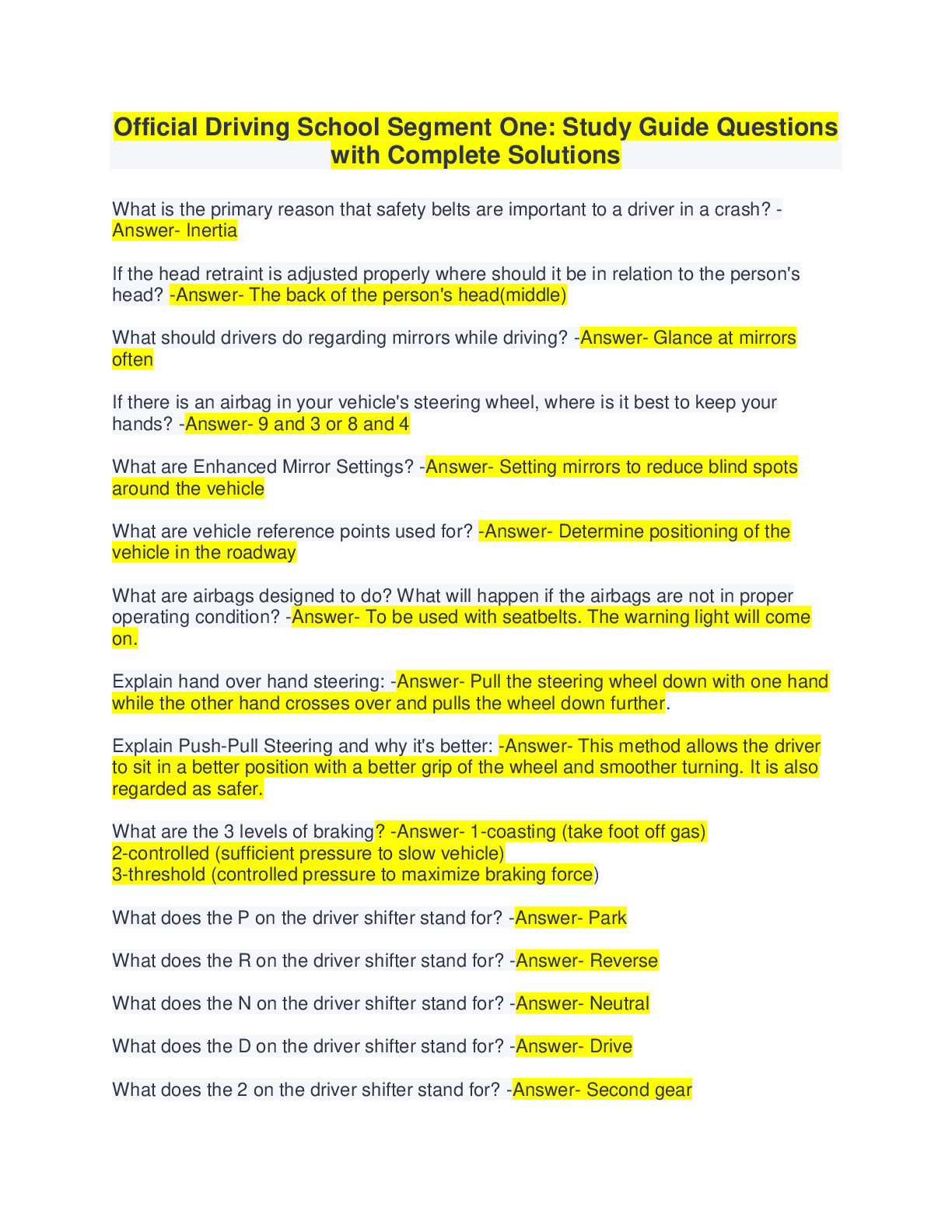
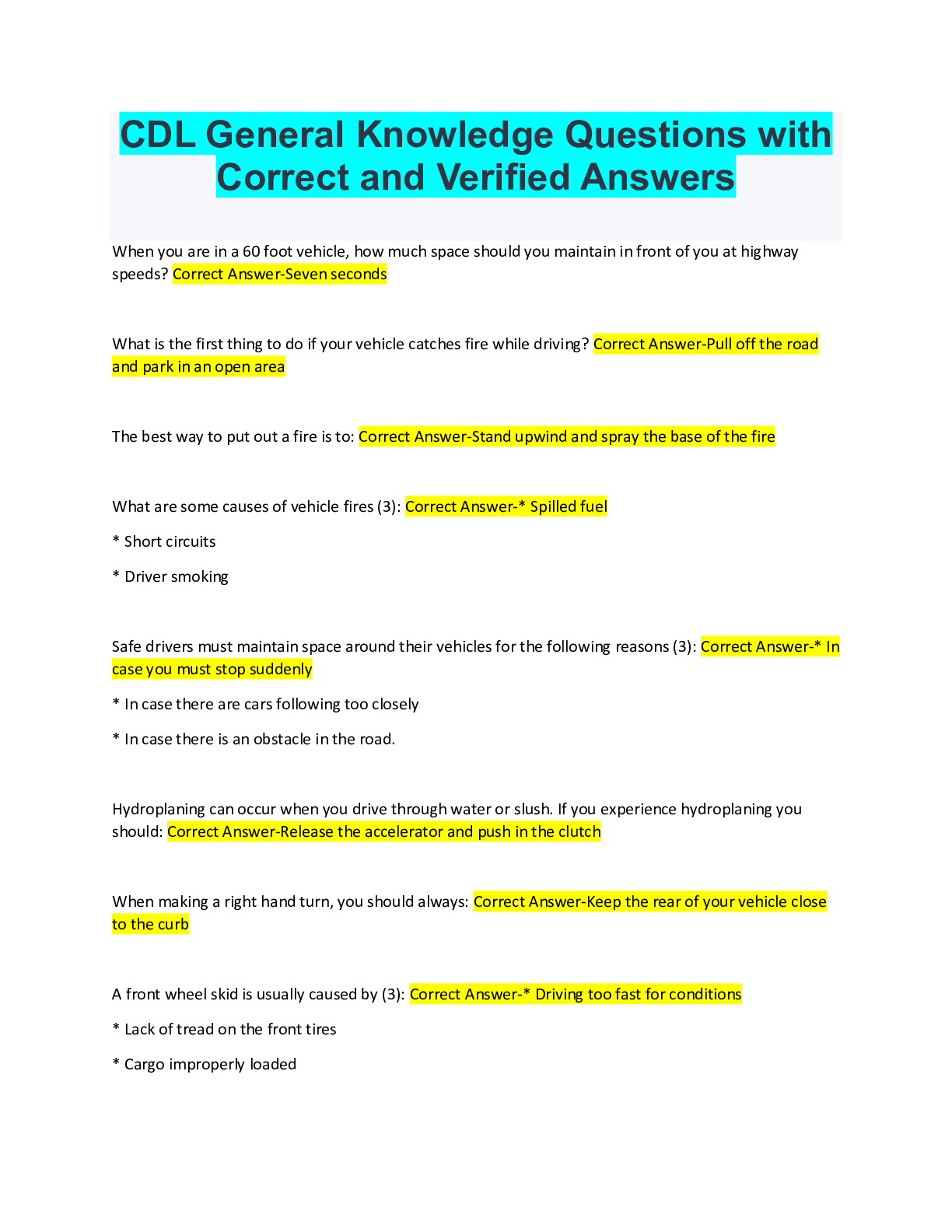
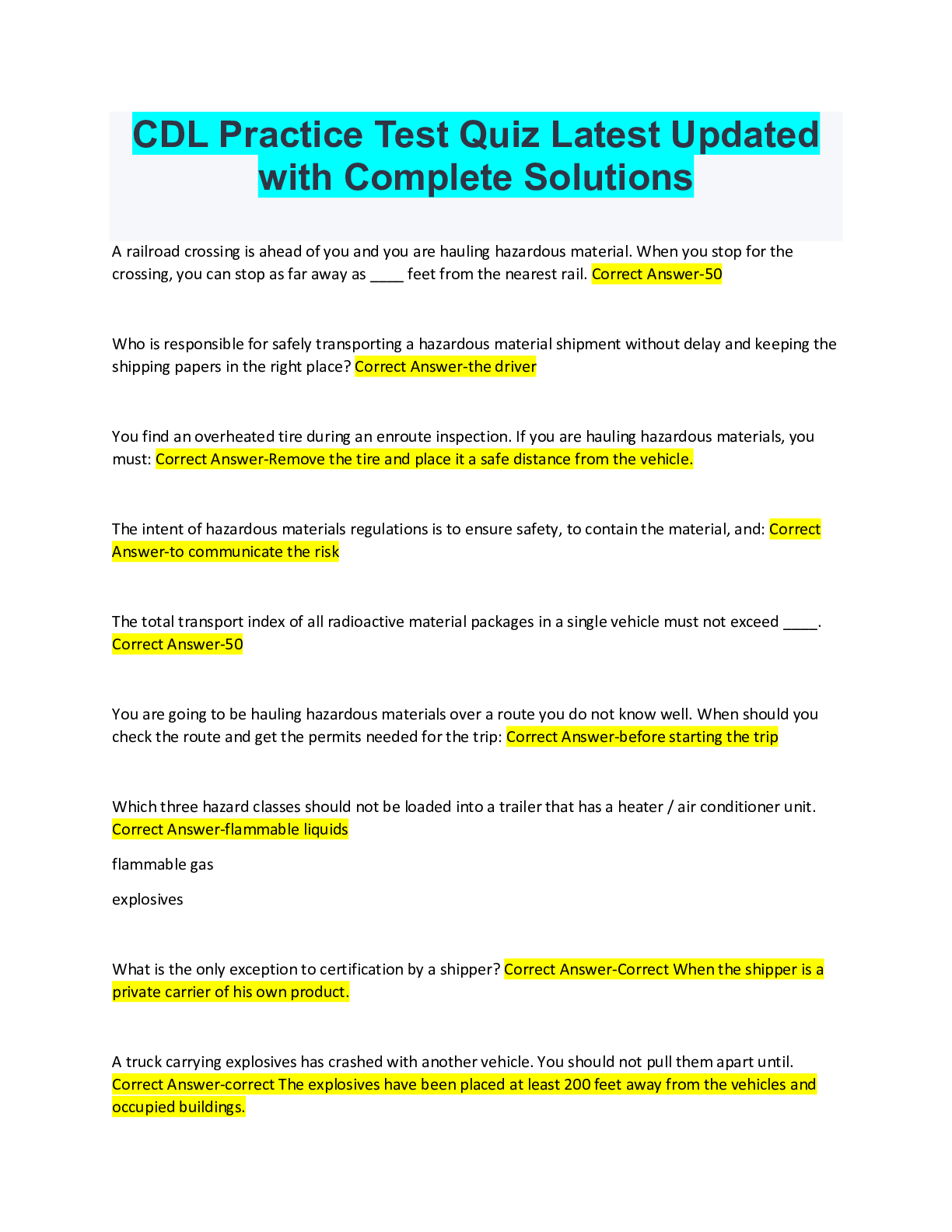
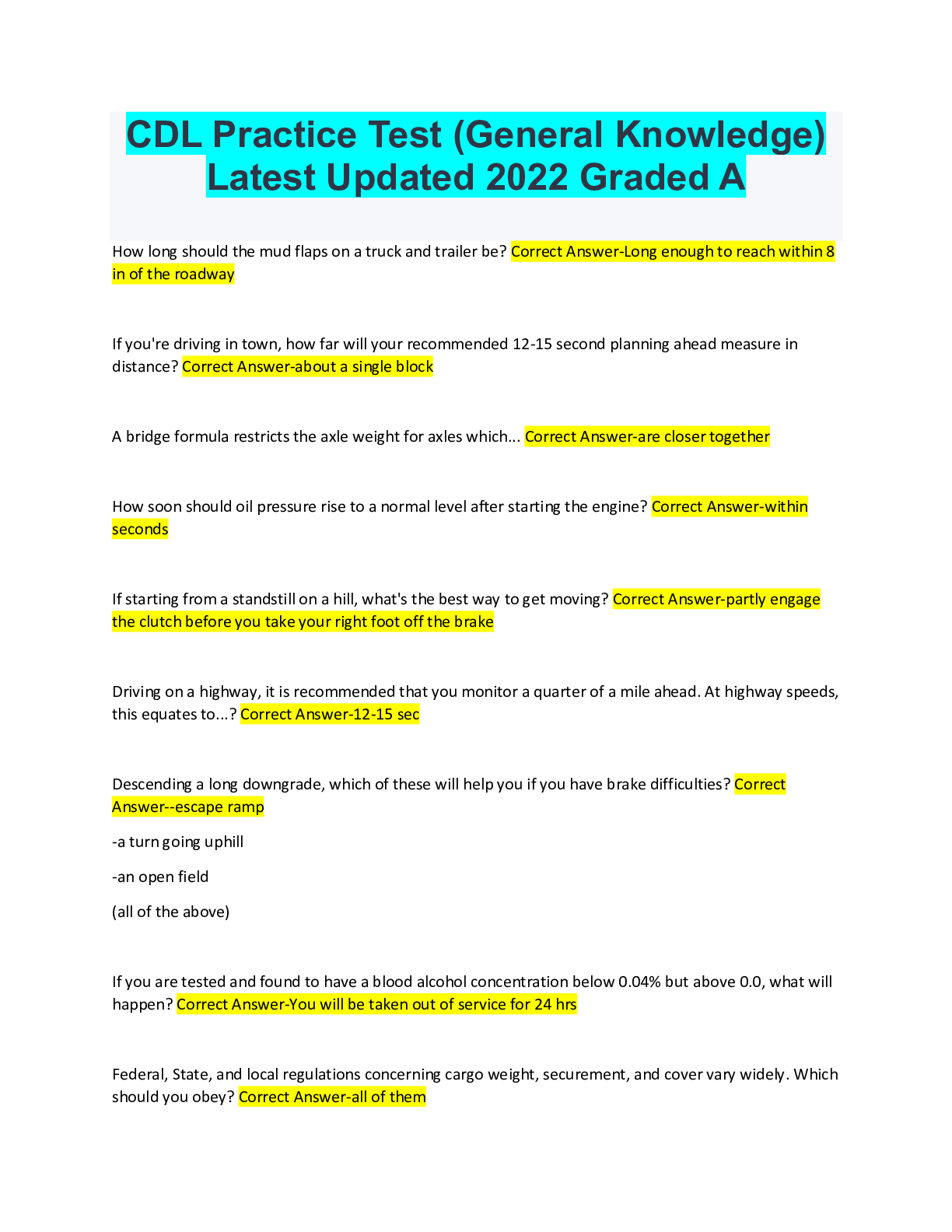
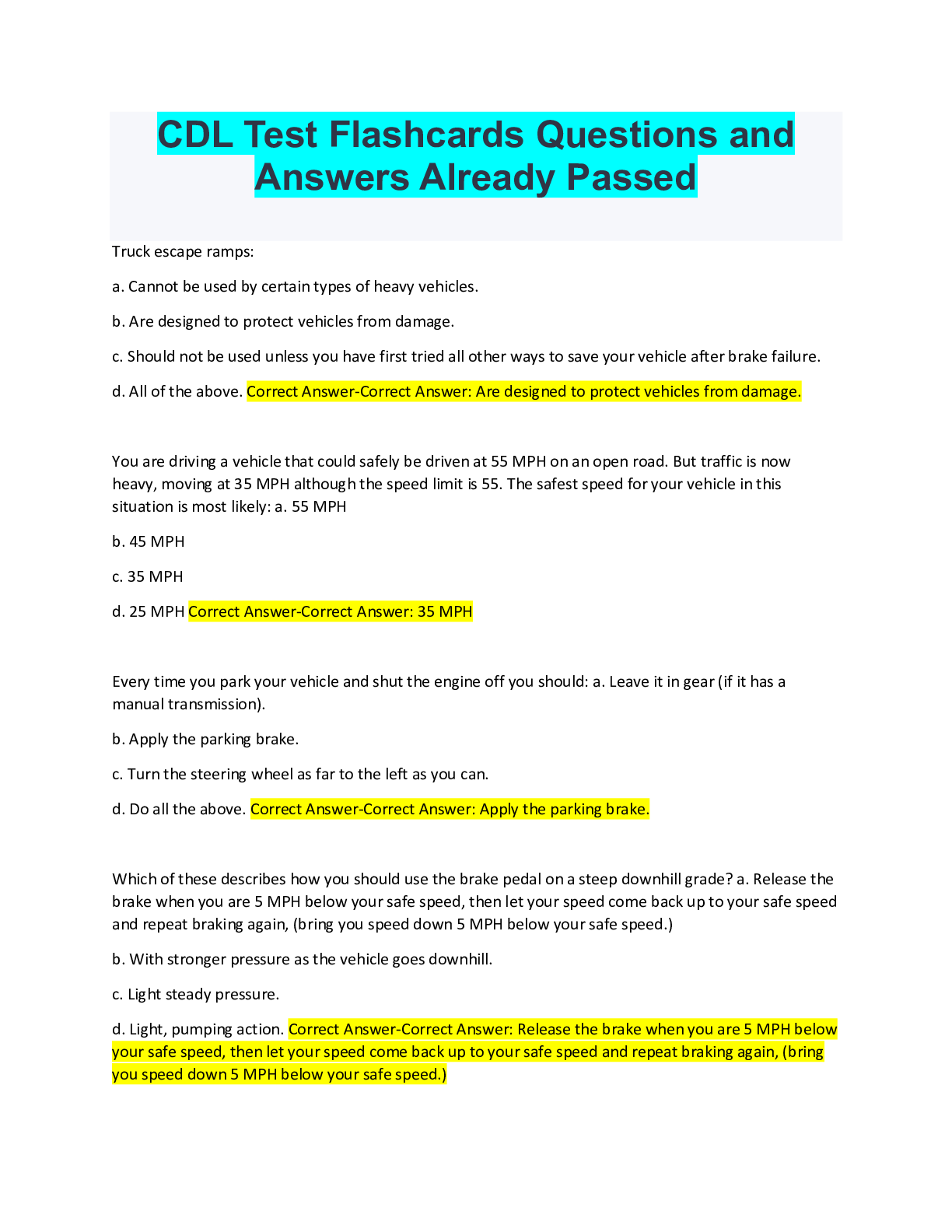
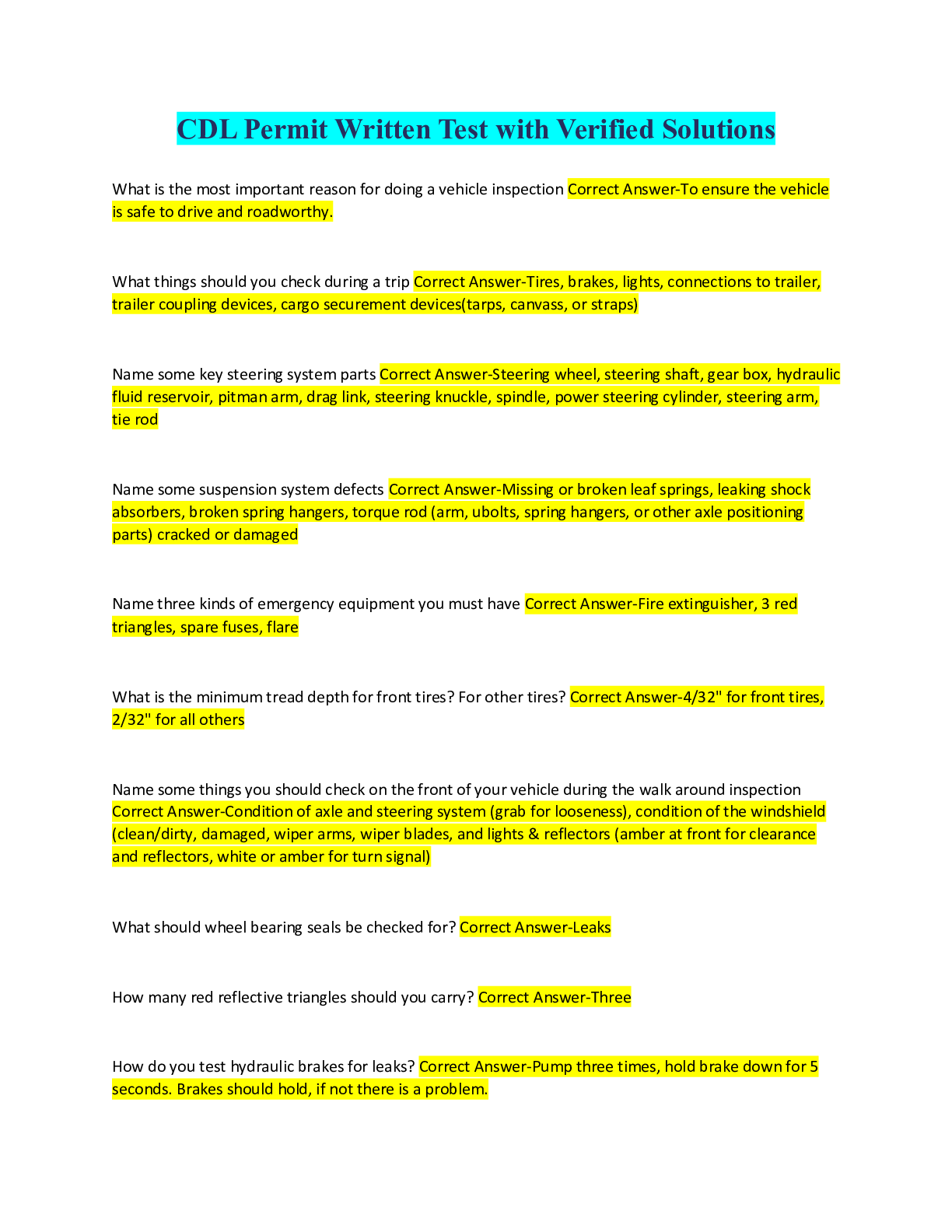
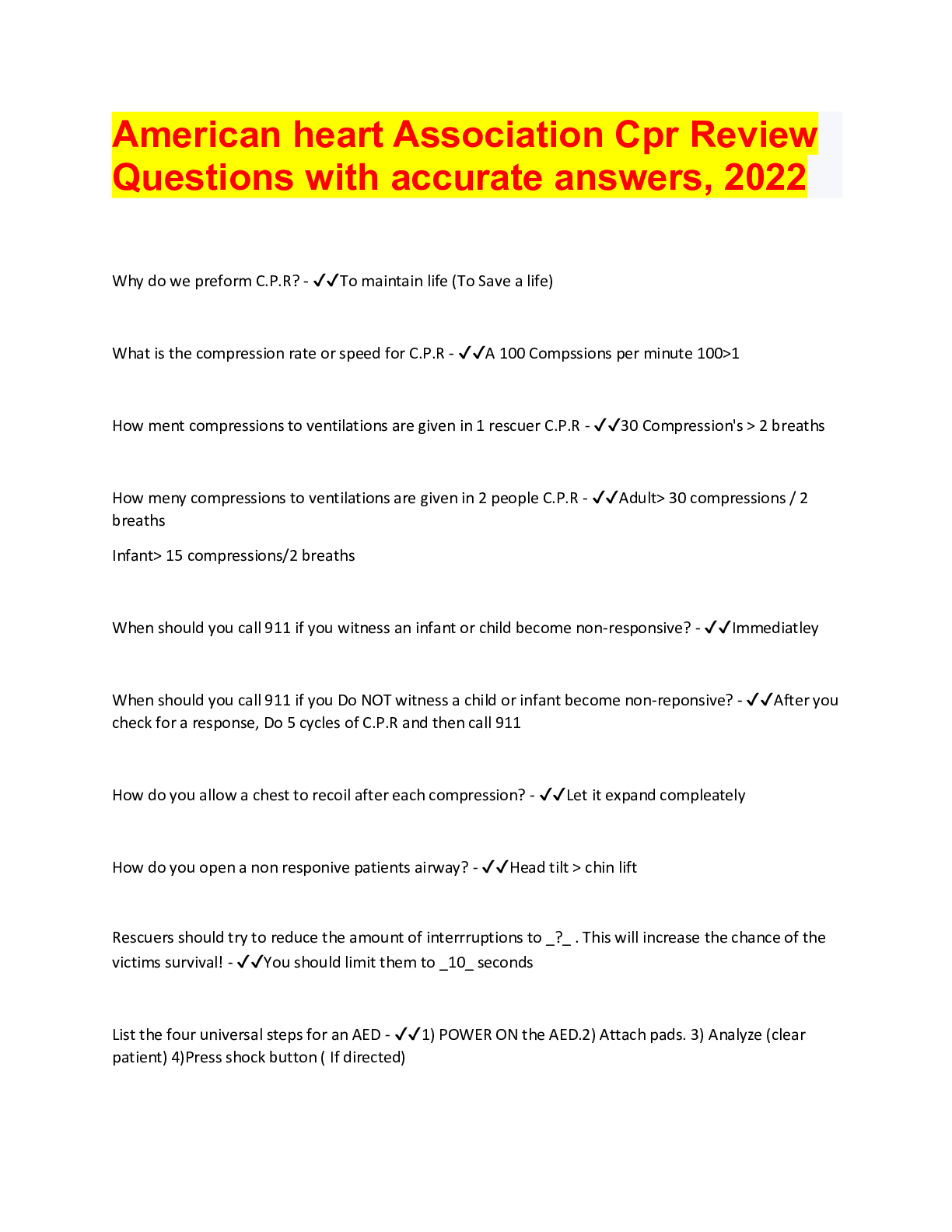
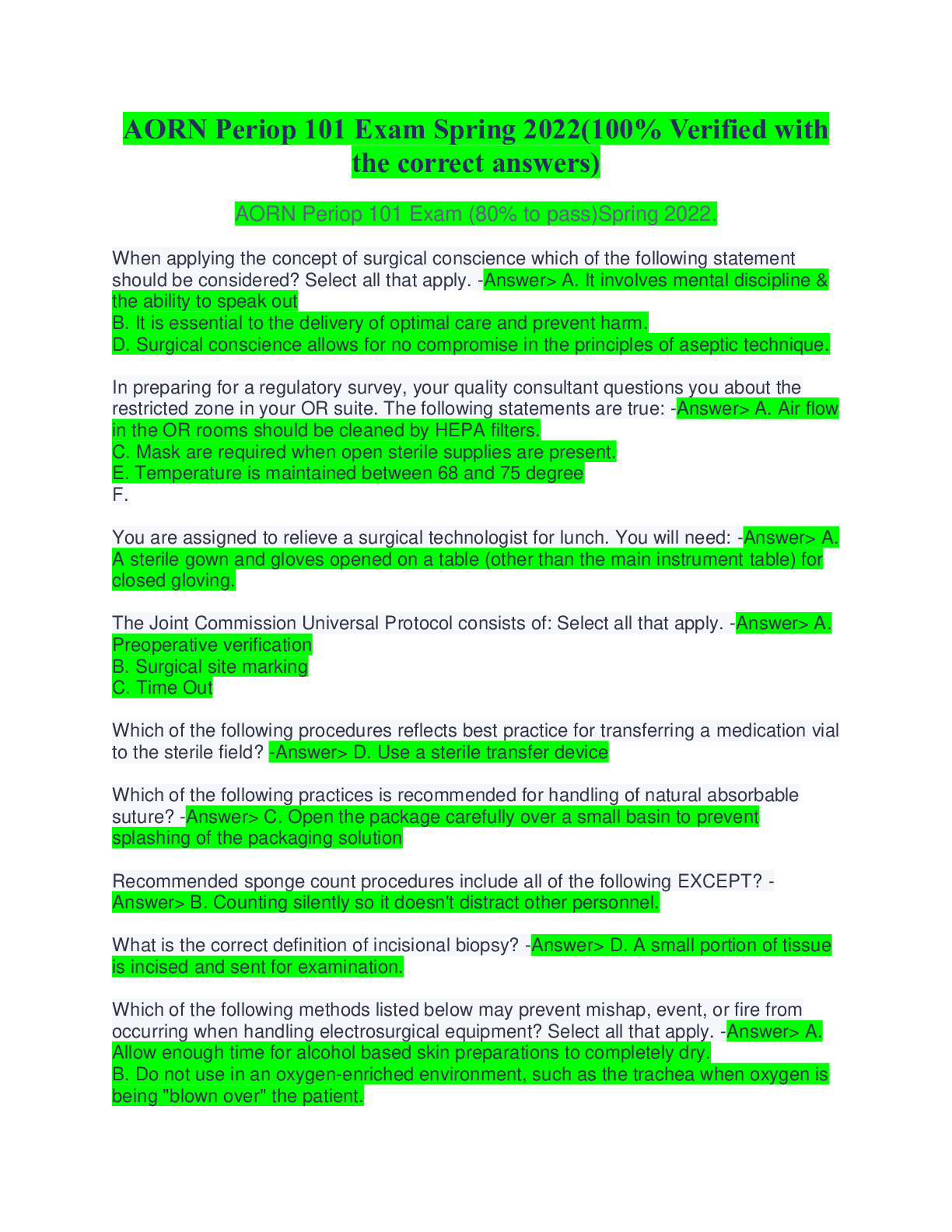
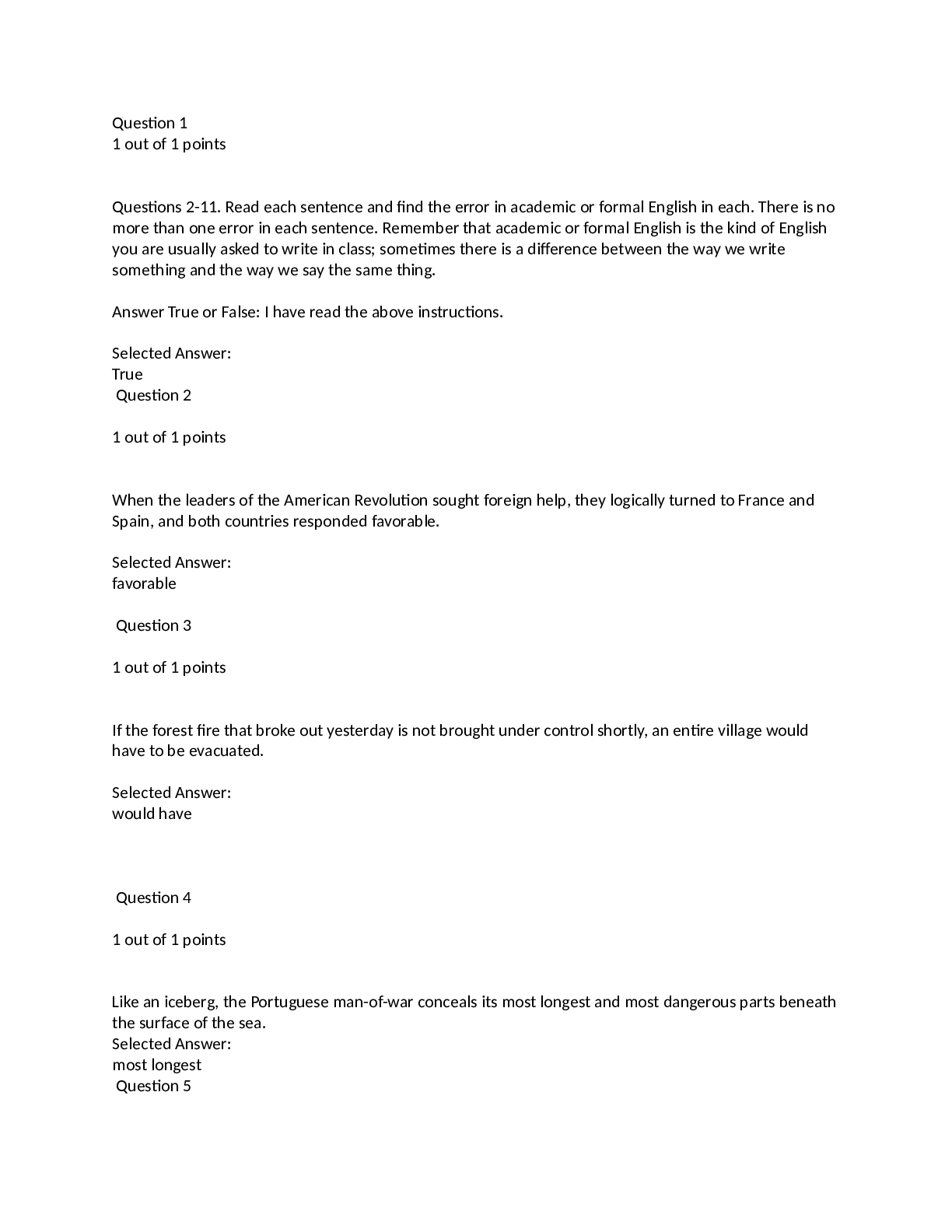
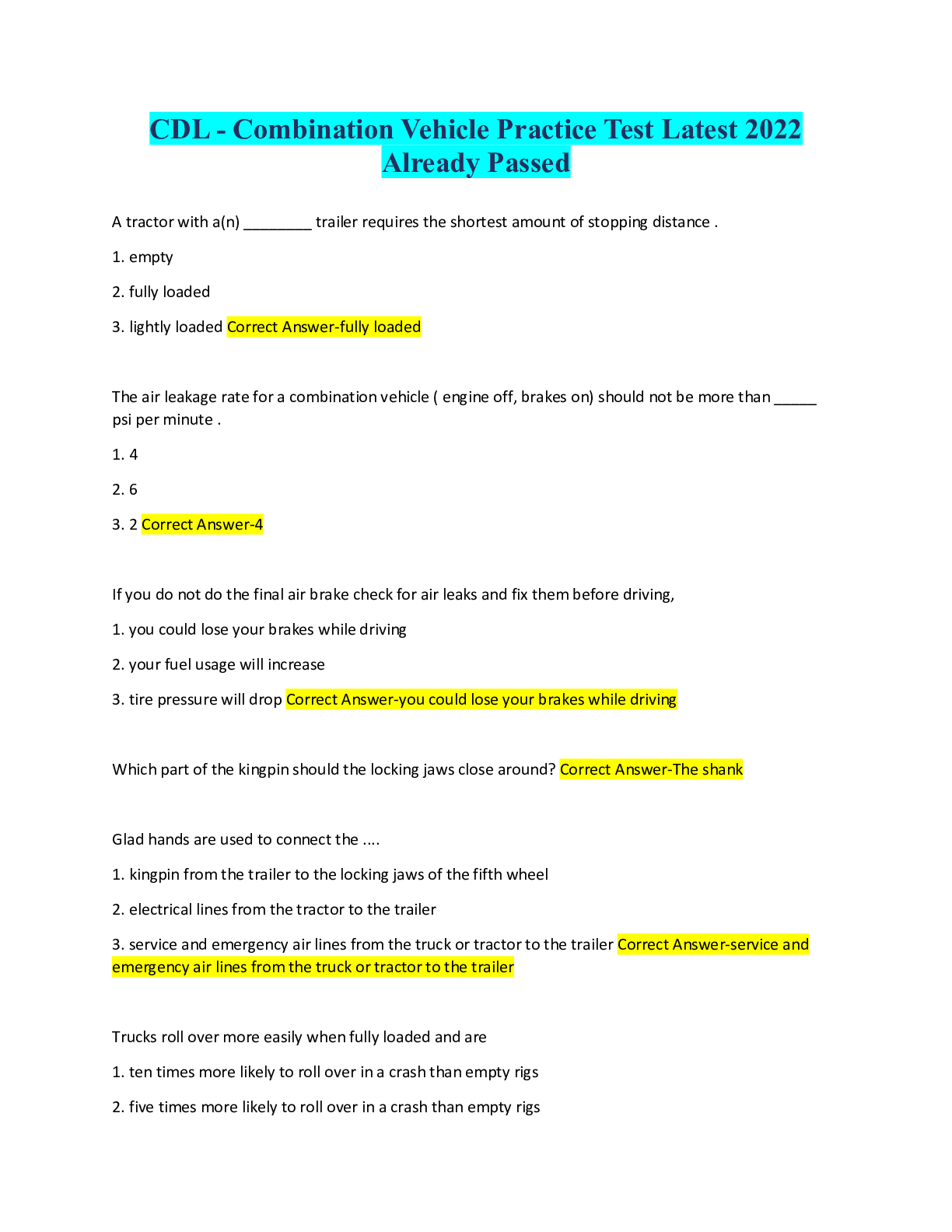
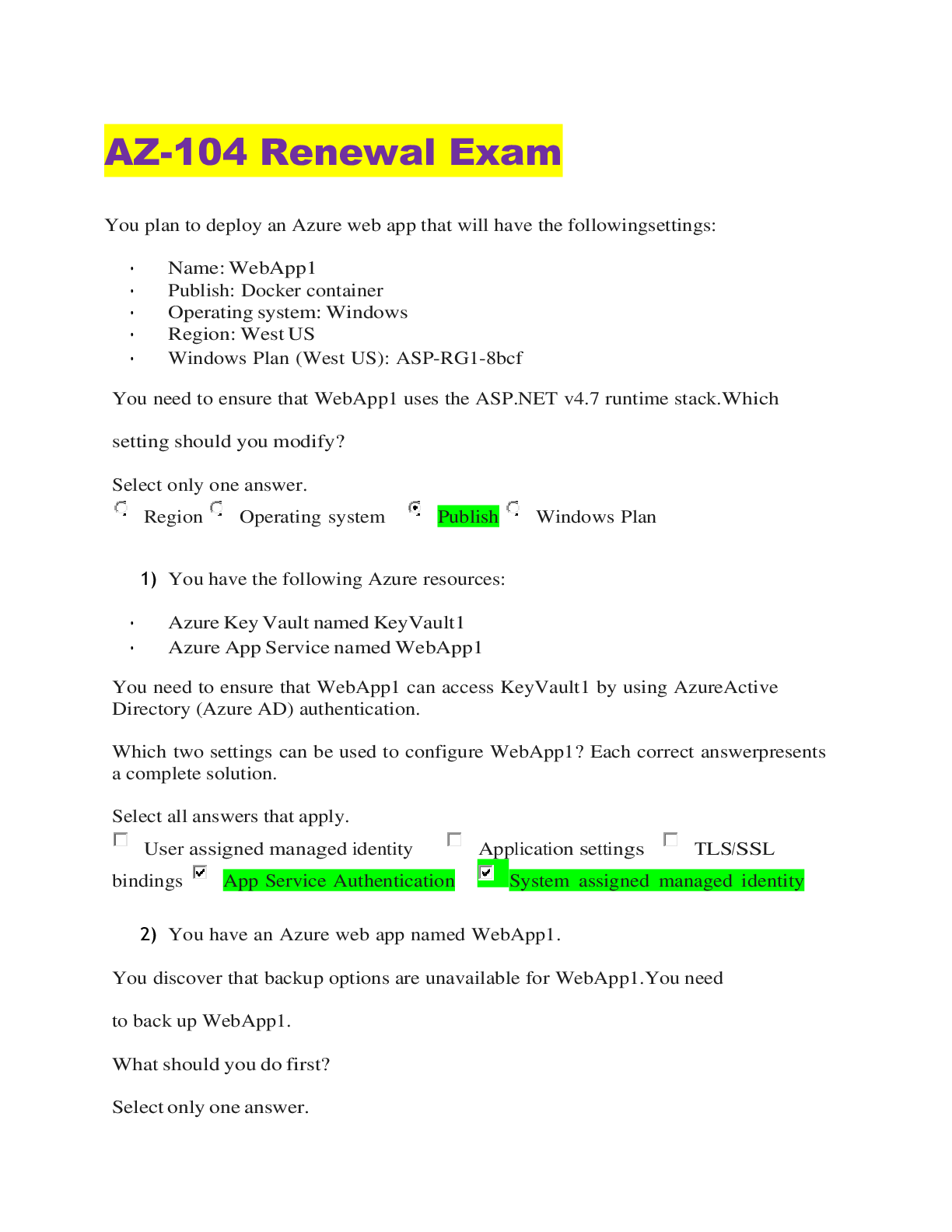
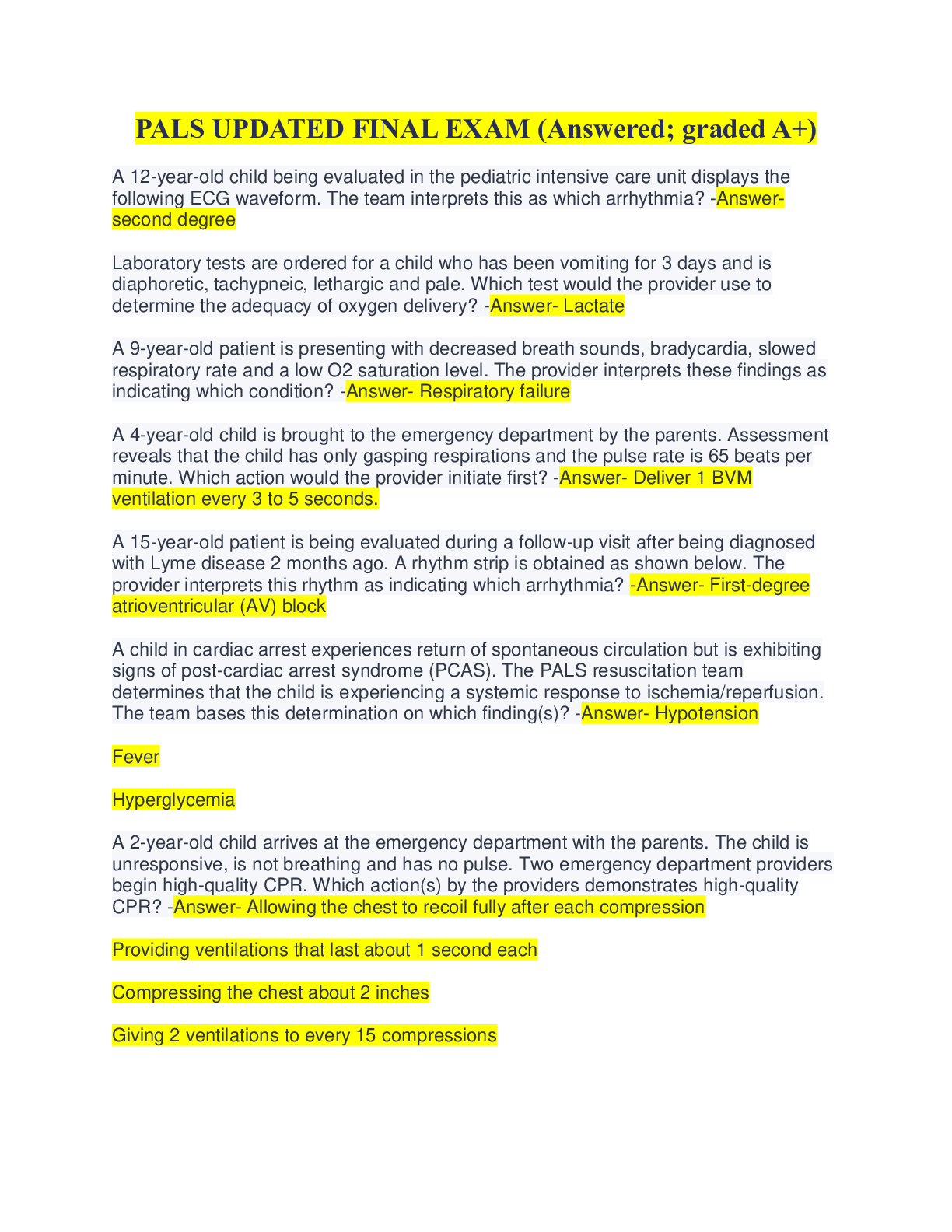

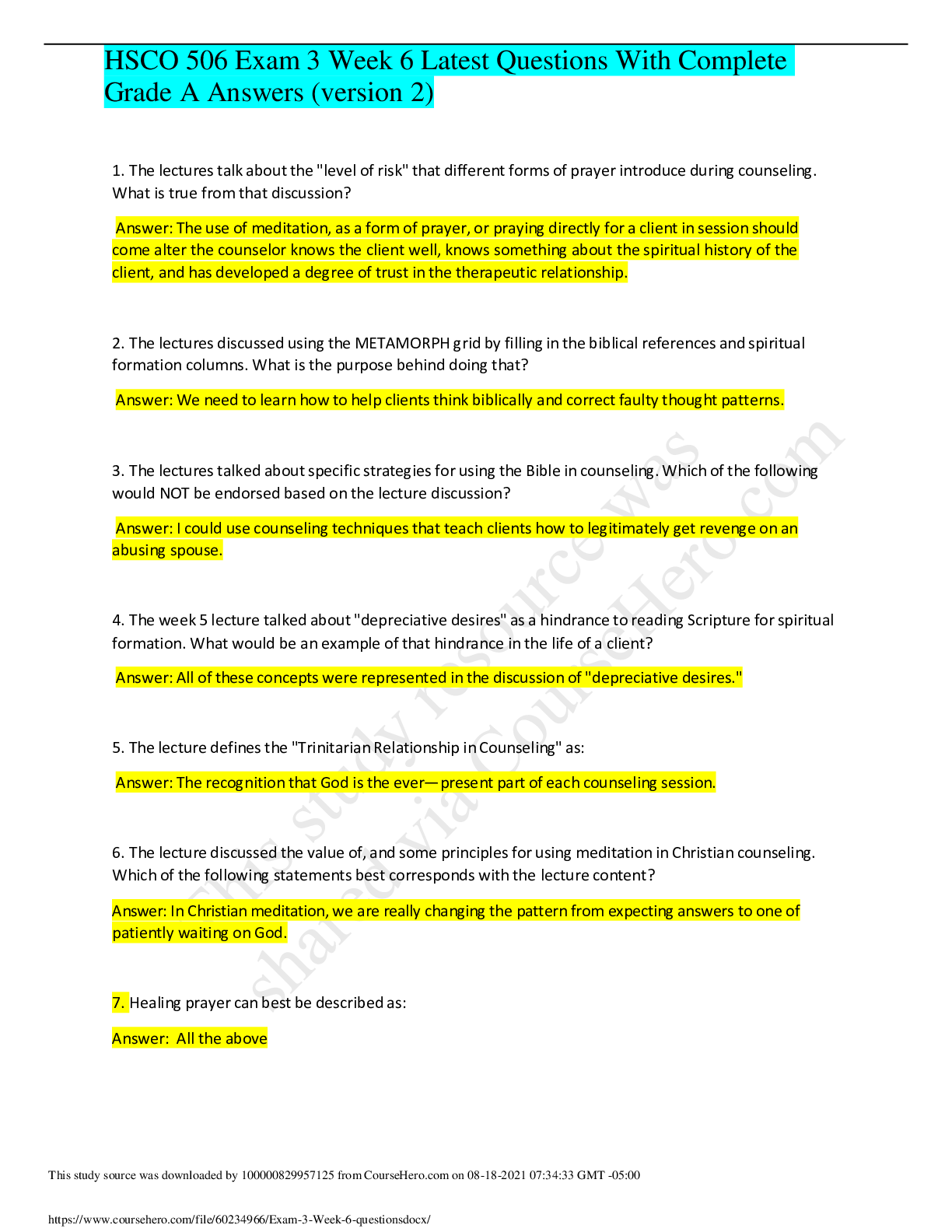
.png)
 A Total Of 100 Questions With Complete Solutions And Verified Answers.png)
 Questions With Complete Solutions And Answers.png)
.png)
.png)
.png)
.png)
.png)
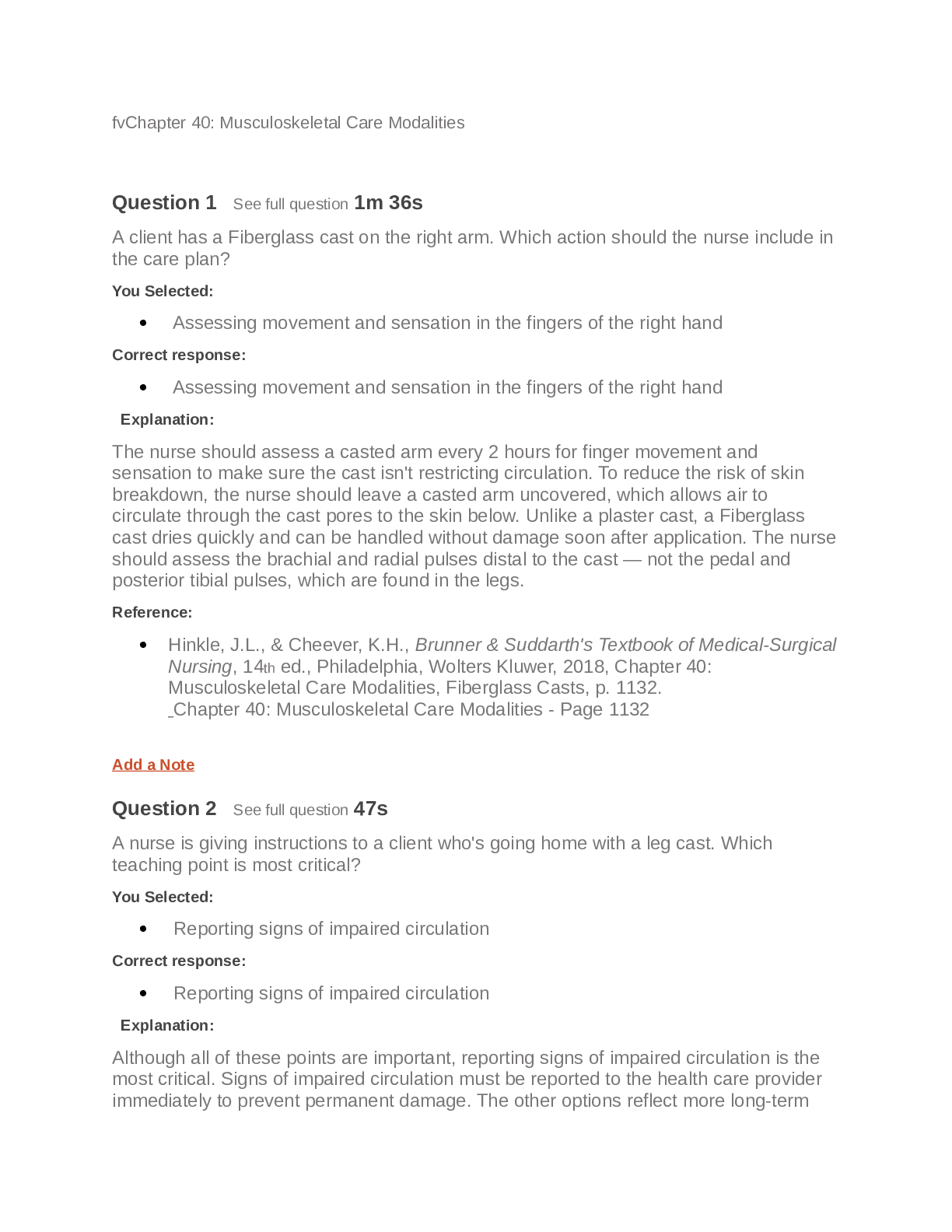
 A Total Of 100 Questions With Complete Solutions And Verified Answers.png)

